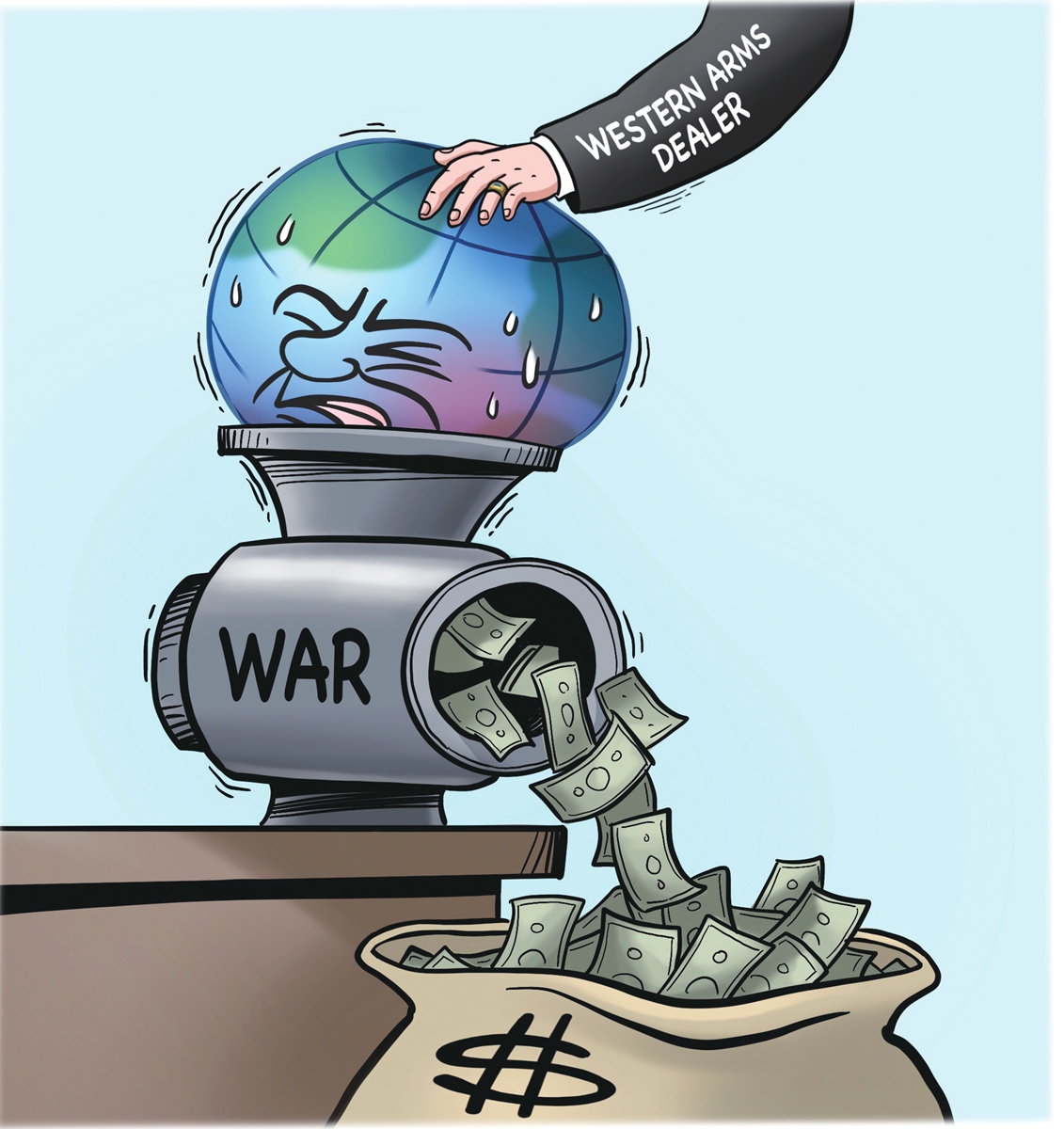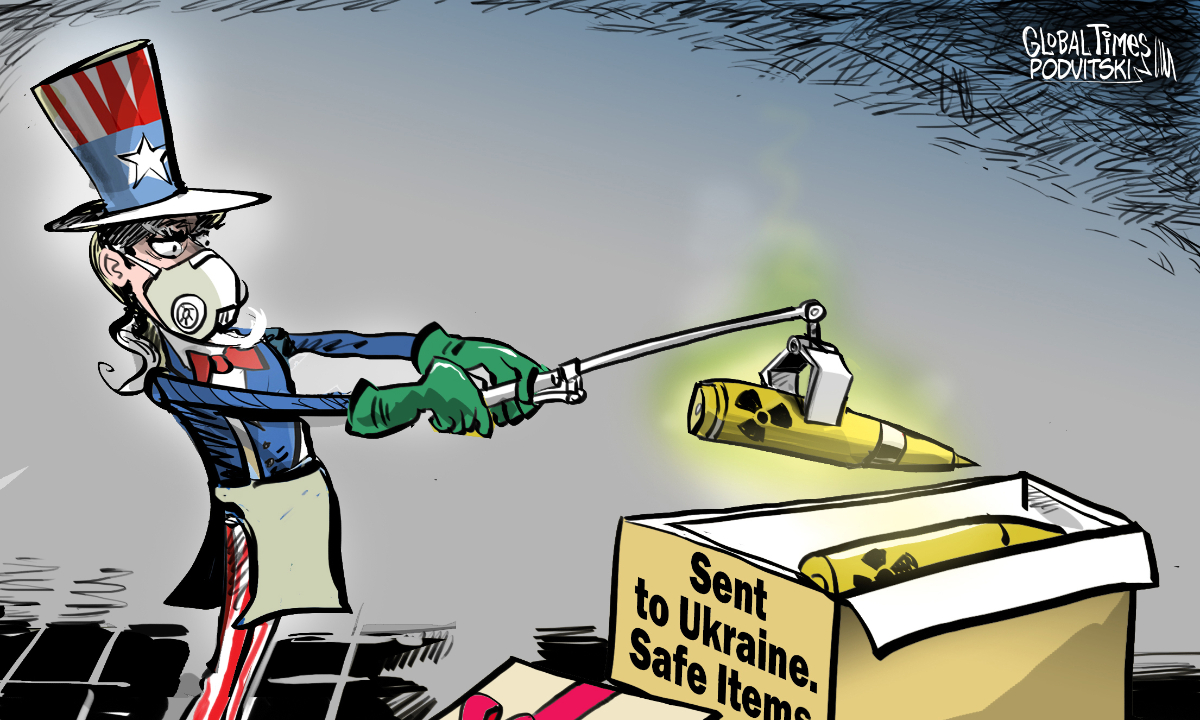‘Wonder weapon’ myth is military-industrial complex PR scheme to profit from death

Illustration: Liu Rui/Global Times
As the Russia-Ukraine war drags on, the Western public has been told that this or that wonder weapon system will turn the tide of the conflict. This has included Javelins, HIMARS, Leopards, Storm Shadow, Bradleys, F-16s, and now depleted uranium munitions, none of which has fundamentally changed the tide of the conflict.
After the slow progress of Kiev's counteroffensive this summer, it is immediately apparent that high-tech equipment is not ruling the day but logistics and supply chains. It is not about who has the shiniest toys but who has the most troops, tanks and artillery and can deploy them quickly. On that front, Russia clearly dwarfs Ukraine, which is a much smaller country. Due to the fact that the West is evidently not going to join in this conflict directly, and there is growing resentment from the Western public against military aid to Kiev, people are wondering if the two sides will reach a peaceful settlement.
We are constantly told, however, that the latter possibility is somehow wrong or immoral because it will fundamentally grant Russia a victory. Well, morals aside, the reality clearly shows that Moscow is achieving its military objectives. Winning on the battlefield naturally translates to a more favorable negotiating position, and believing otherwise is to live in a realm of make-believe.
Some people idealistically (or opportunistically) believe that the West should support Ukraine's futile fight against a far superior military power, even though that support will not challenge the eventual outcome and will lead to more death and destruction. Others believe death and destruction are undesirable outcomes; thus, Western leaders should pivot to a negotiations-first approach. The former view dominates the news media while the latter has gained a huge following on social media.
What's also interesting about the difference between these two views and how they've fielded an audience is also about who's backing them. People who hold the latter view are constantly accused - without evidence - of being funded by the Russian government or, as some US intelligence reports suggest, unwitting assets. Meanwhile, a recent analysis by the Quincy Institute for Responsible Statecraft found that think tanks funded by defense industry ?contractors are cited 85 percent of the time in Ukraine-related content - and media outlets rarely cite these conflicts of interest.
So, which of these viewpoints is compromised? I believe it's safe to say the latter. And that's important because we need to understand the dynamic here: The media is quite literally operating as a paid advertiser for defense contractors. Not only do some outlets consistently peddle that some particular line of products will turn the tide of battle (they will not), but they also cite compromised experts that push a line conducive to selling more defense products. Rinse and repeat.
This is what is so sinister about modern conflict. When you look at the decades that the West was entrenched in Afghanistan, the current Ukraine quagmire or a potential situation in Taiwan island, it's not about any serious geopolitical strategy or values. It's just about making a handful of companies richer. Worse still is that this is public, taxpayer money going to this cabal - and, to be sure, primarily working-class funds when taken in conjunction with the historic Reagan, Bush and Trump tax cuts, which cut taxes for the wealthy.
It would be extraordinarily naive to believe that defense contractors and the people they fund have incentives that supersede the profit motive. Instead, these companies profit from death and human suffering, and they're enabled by information laundering operations known as think tanks, which are cited without any scrutiny from journalists who are either lazy or also compromised.
The author is a Prague-based American journalist, columnist and political commentator. opinion@globaltimes.com.cn


